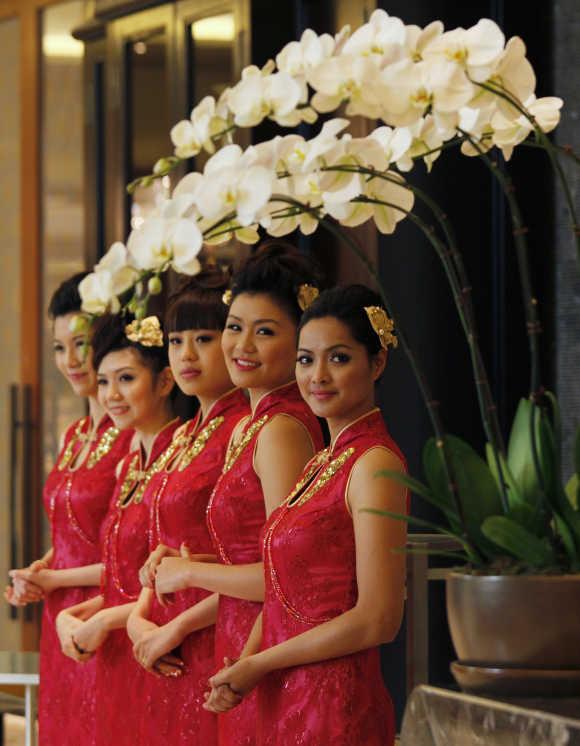
Gambling in Macau has been legal since the 1850s when the Portuguese government legalised the activity in the colony. Since then, Macau has become known worldwide as the "Monte Carlo of the Orient".
...

Gambling tourism is Macau's biggest source of revenue, making up about 50 per cent of the economy. Visitors are made up largely of Chinese nationals from the mainland and Hong Kong.
...
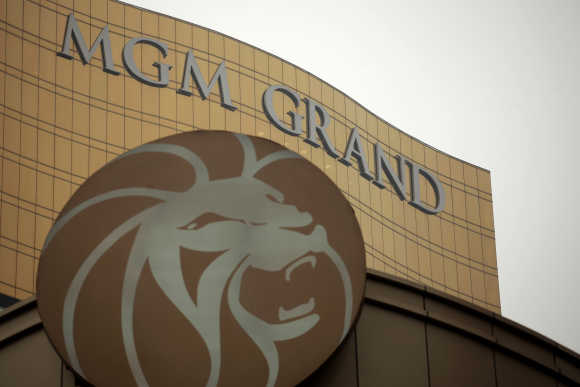
With the entry of large foreign casinos from Las Vegas and Australia, Macau overtook the Las Vegas Strip in gaming revenues in 2007.
...
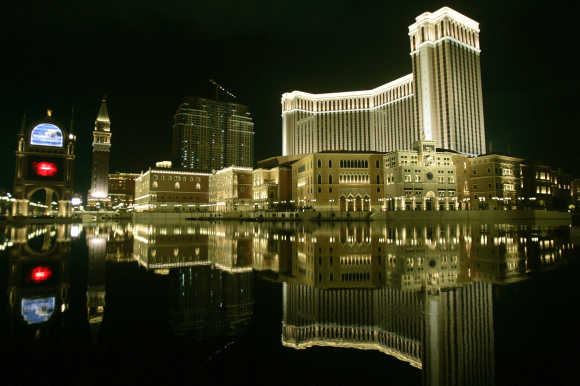
Until Western-style casino games were introduced in the 20th century, only Chinese games were played, the most popular being Fan-Tan.
...
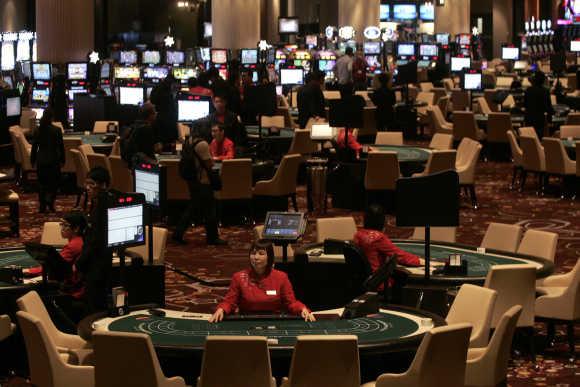
Generally, gambling in Macau can be divided into three different categories: casino games, horse racing and greyhound racing.
...
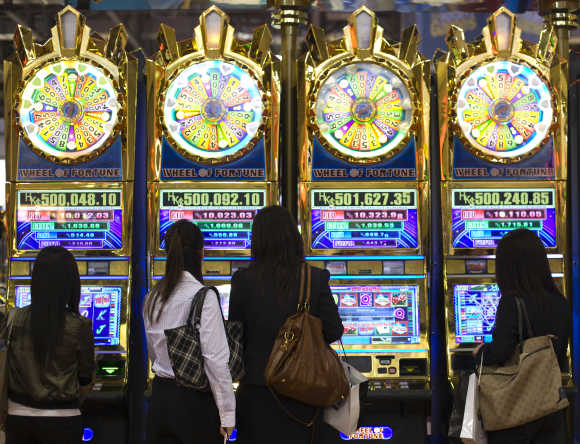
There is also sports betting and a number of lotteries. Macau, however, does not license online gaming operations.
...
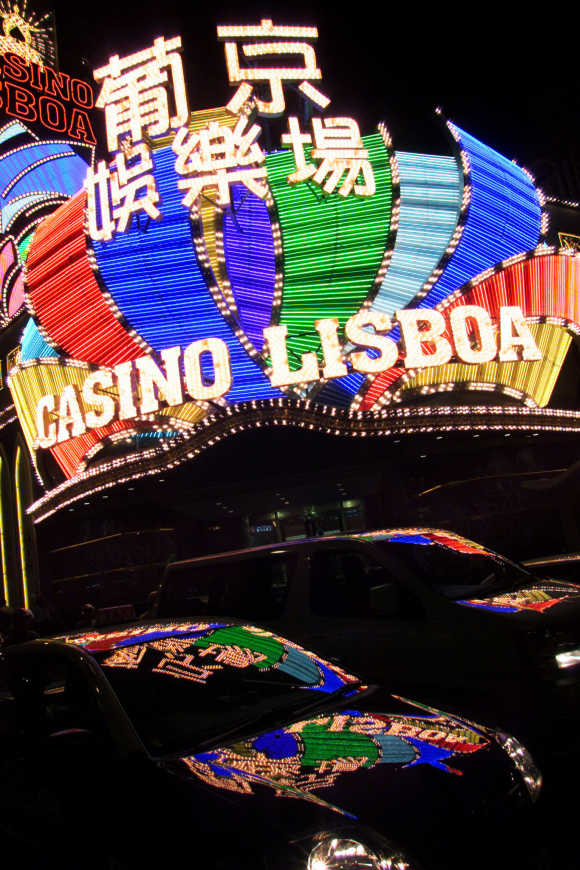
In the late 19th century, the government introduced a licensing system for the Chinese gambling houses.
...
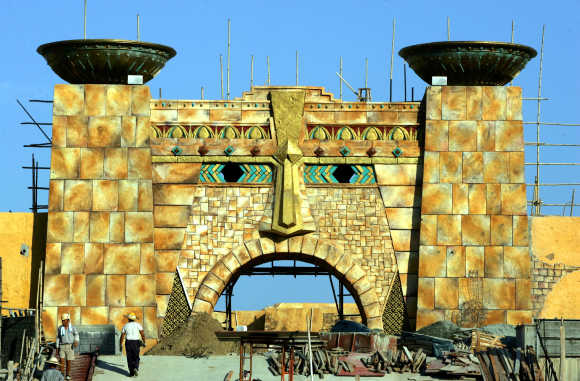
The so-called "Monte Carlo of the Orient," Macau's economy relies heavily on gambling.
...
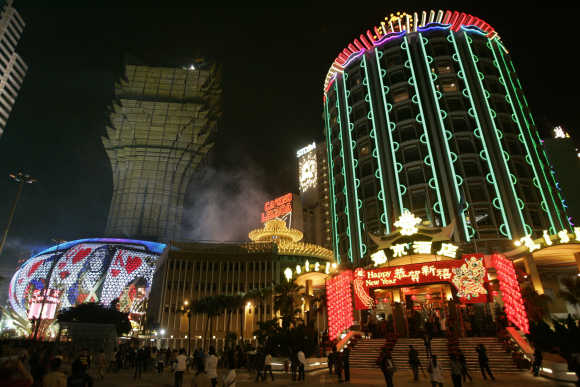
Nowadays, the gambling industry generates over 40 per cent of the GDP of Macau. Since the early 1960s, around 50 per cent of Macau's official revenue has been driven by gambling.
...
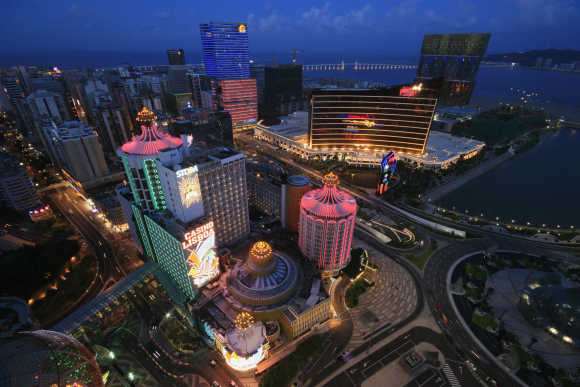
The percentage remained steady until the late 1990s.
...
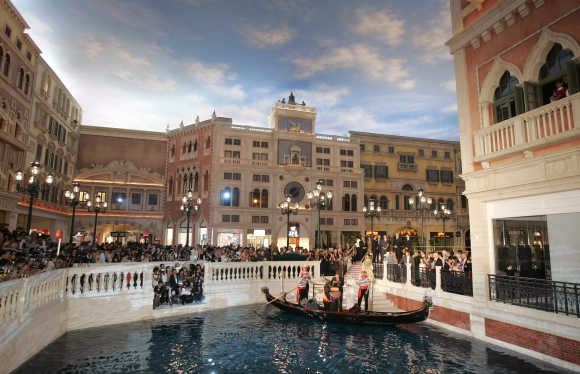
In 1998, 44.5 per cent of total government revenue was produced by the direct tax on gambling.
...
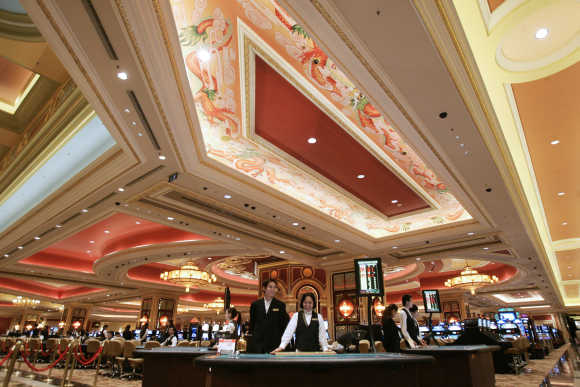
Then there was a 9.1 per cent decrease in 1999, probably due to Internet gaming.
...
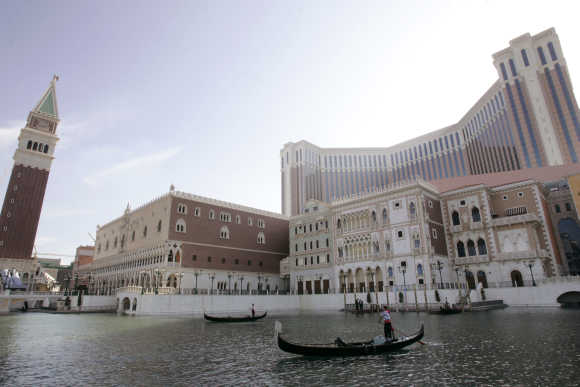
After the handover of the Macau from Portugal to China, the SAR released gambling licenses to other companies in order to eliminate the monopoly played by the STDM.
...
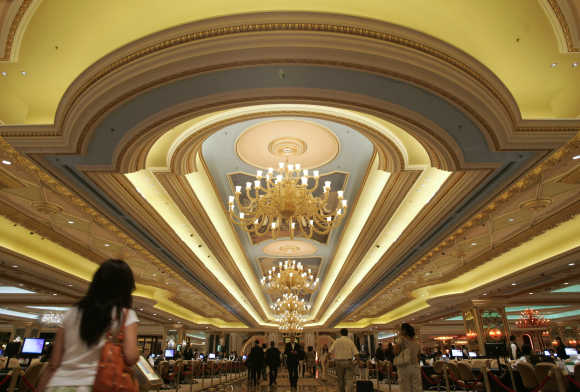
In 2002, the government signed concession contracts with two Macau gaming companies, Wynn Resort Ltd. and Galaxy Casino.
...
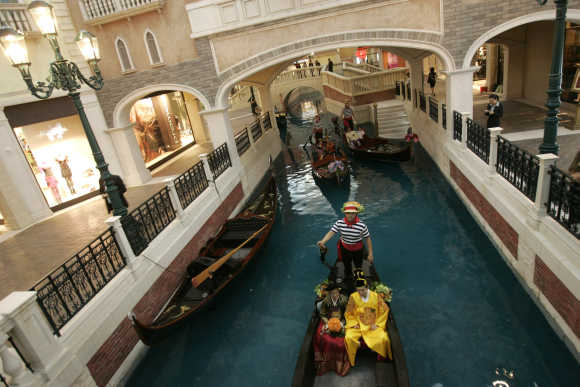
This opened the gambling market for competition and increased government tax revenue significantly. It also attracted more tourists to Macau.
...
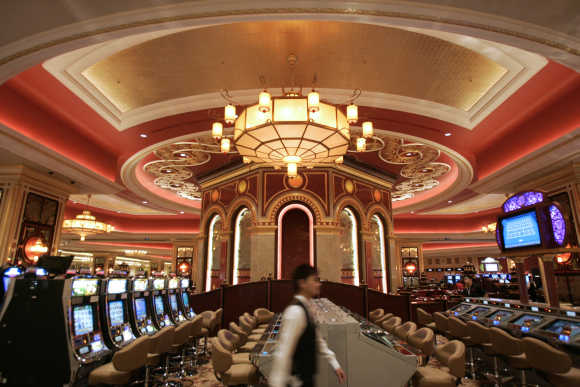
At this moment, according to official statistics, gambling taxes form 70 per cent of Macau's government income.
...
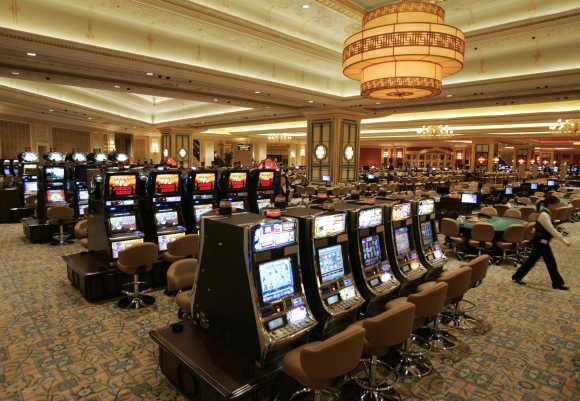
However, the gambling industry is also a source of instability in the Macau economy, as the nature of gambling business is not susceptible to technological advancement or productivity growth.
...
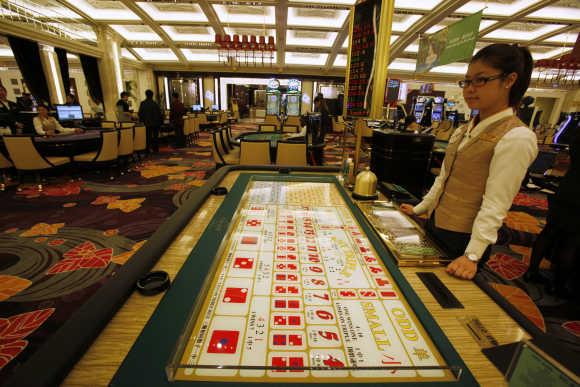
The gambling business is still dependent on the prosperity of other Asian economies, especially that of Hong Kong.
...
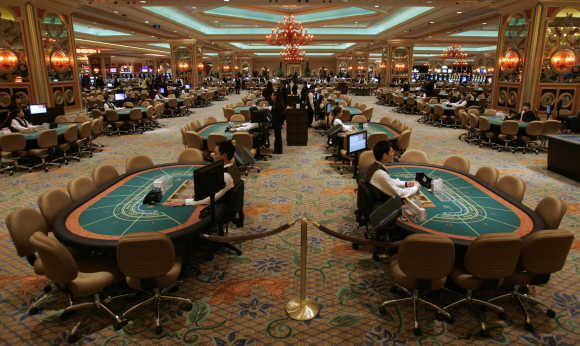
Detailed law is enforced in Macau to ensure "qualified operation of gambling" in Macau.
...
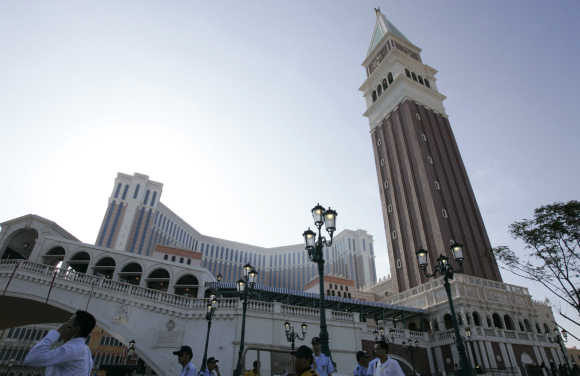
Macau has 33 casinos, of which the biggest is The Venetian Macau.
...
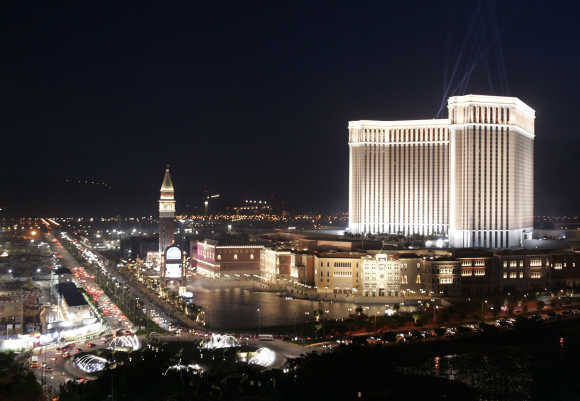
Twenty-three casinos are located on the Macau Peninsula and 10 casinos on Taipa Island.
...
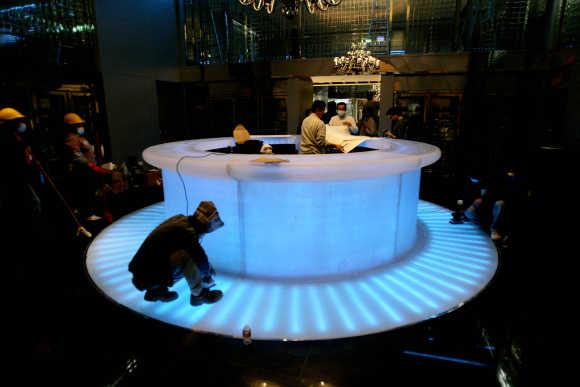
They all operate under a government franchise and under a common set of rules.
...
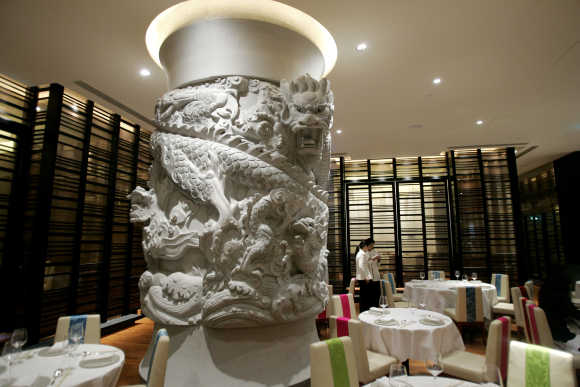
Many forms of gambling are legal there, such as blackjack, baccarat, roulette, boule, Sic bo, Fan Tan, keno and slot machines.
...
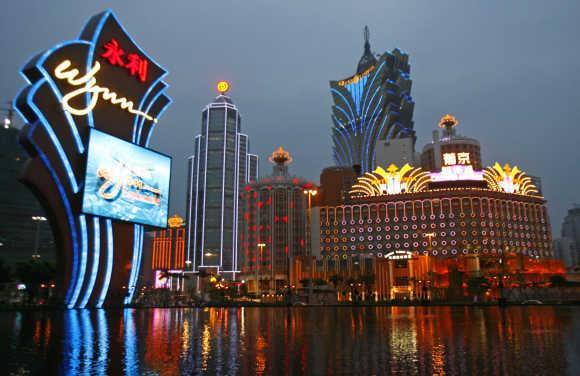
Poker was introduced only in August 2007, in an electronic table format at Galaxy Starworld casino.
...
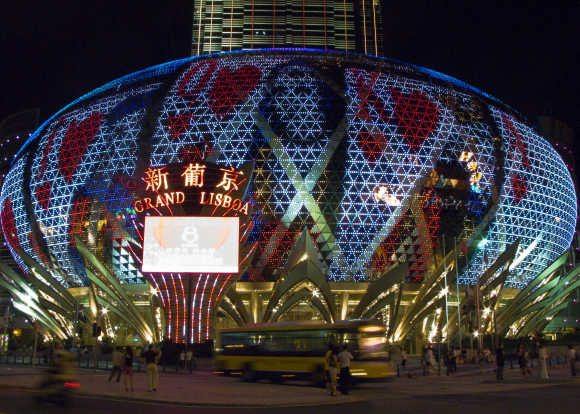
The casino industry is viewed by some as harmful to society. A high crime rate was one of the biggest problems that Macau's colonial Portuguese government had to face.
...
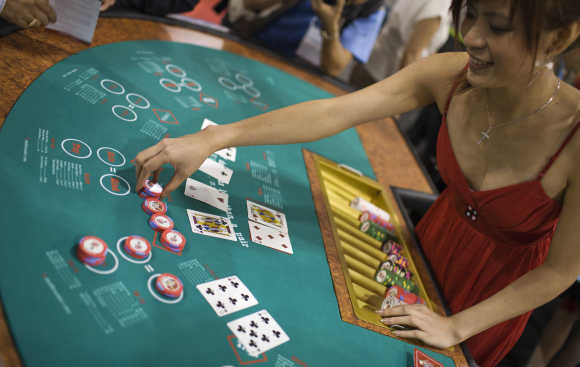
Since Macau's return to China's rule in 1999, the public security situation has markedly improved.
...
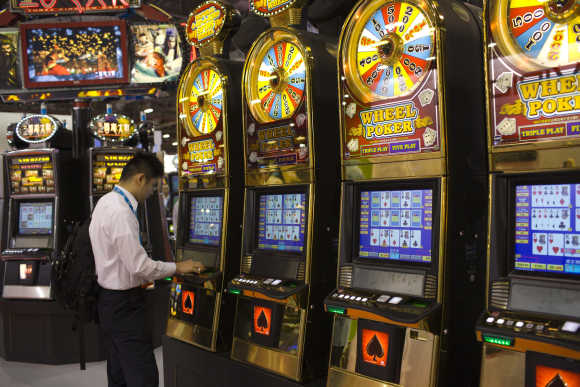
With the growth of the casino industry, a business called "bate-ficha" was developed and it is usually run by different triad societies. The bate-ficha business is an element of triad involvement in Macau's gambling industry.
...
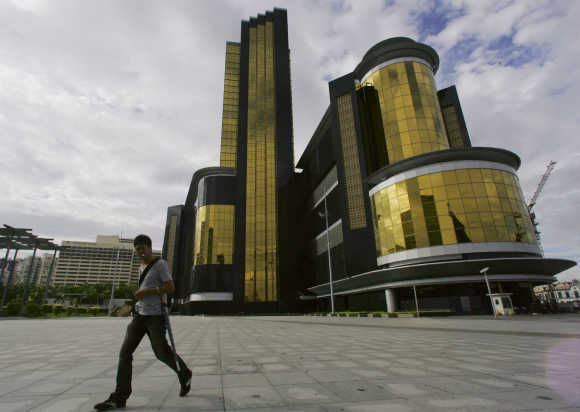
Bate-ficha involves selling customers "dead chips" that cannot be exchanged for cash in the casinos, but only by bate-ficha men or women, who are officially known as "gaming promoters" or "middlemen." for a commission.
...
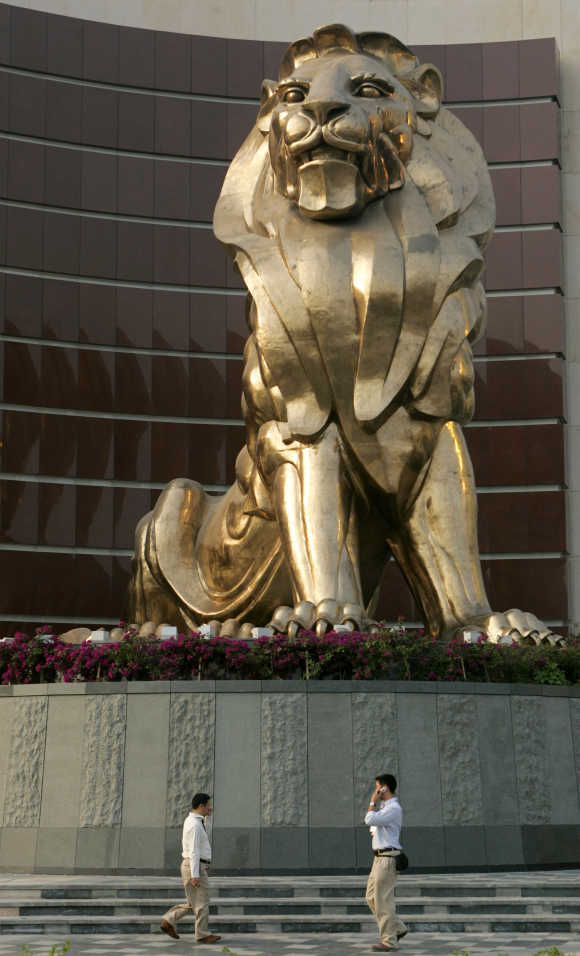
Triad involvement in Macau casinos makes a serious social impact on the local area. It attracts the attention of Chinese gangsters, whose deadly battles over the fortunes to be made from racketeering and extortion in the territory are a continuing problem.
...
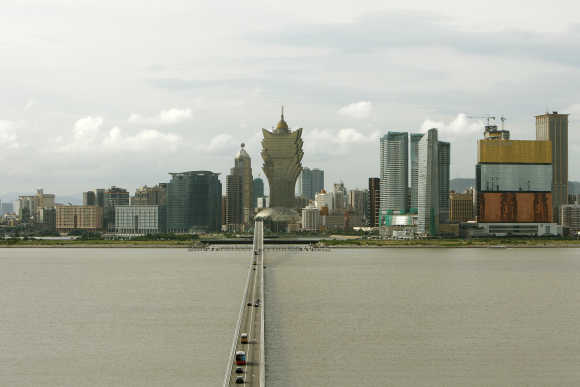
As different triad societies compete for controlled territory in the casinos and on the streets, disputes between societies occur from time to time. These are often settled in violent ways.